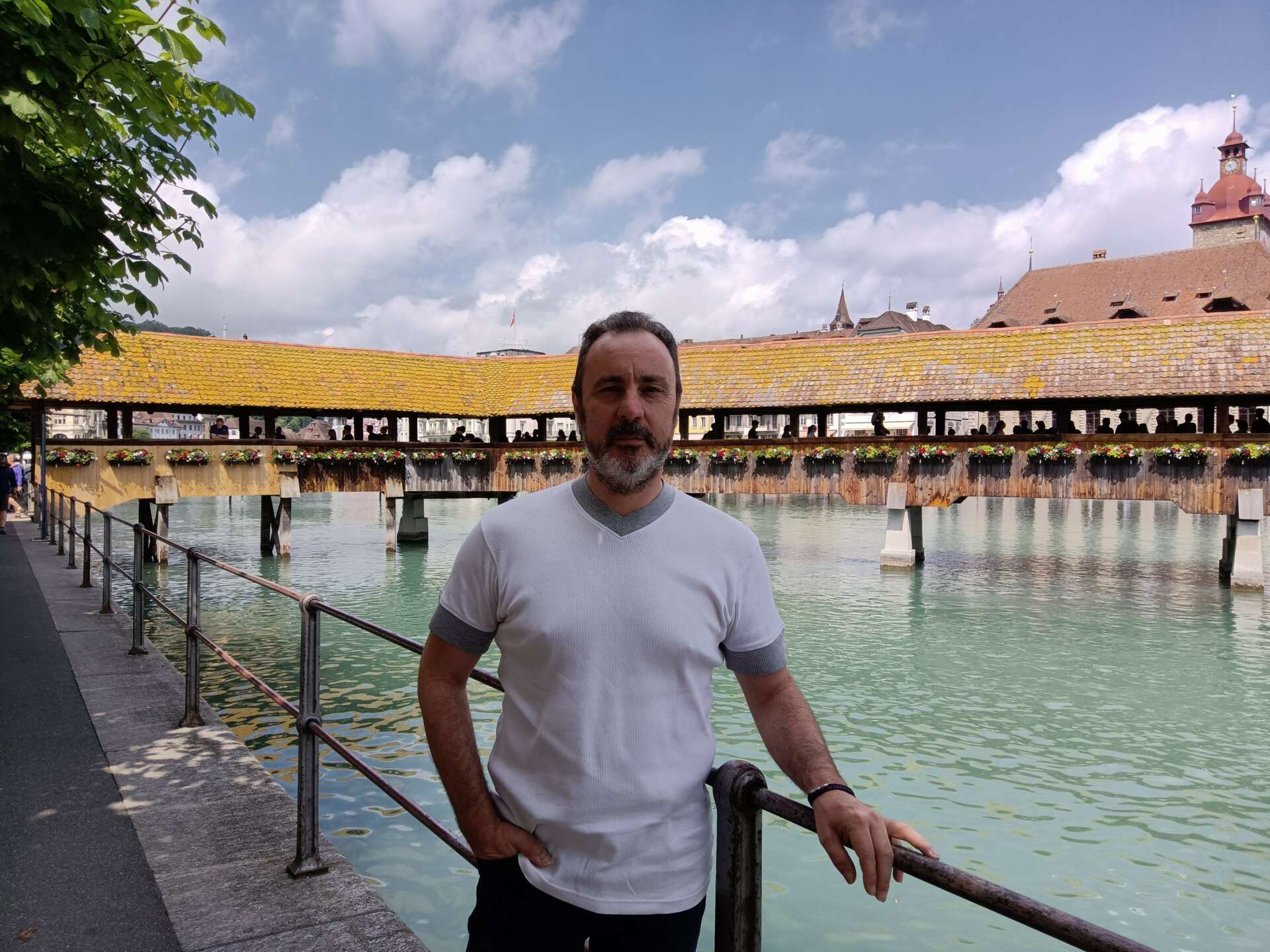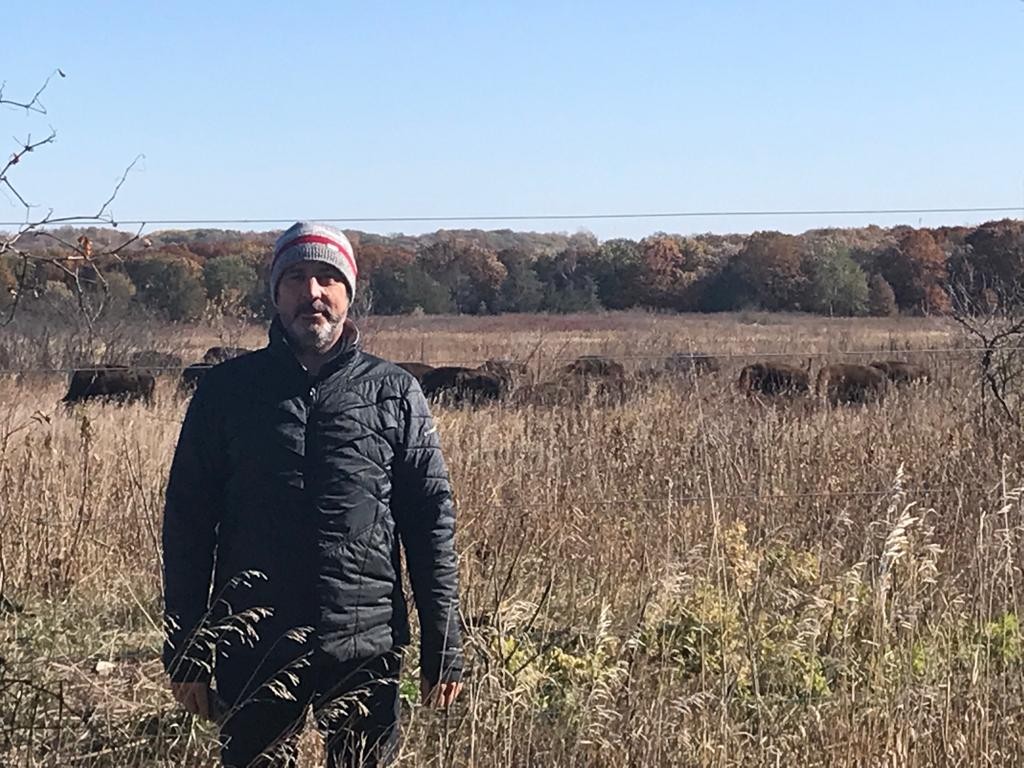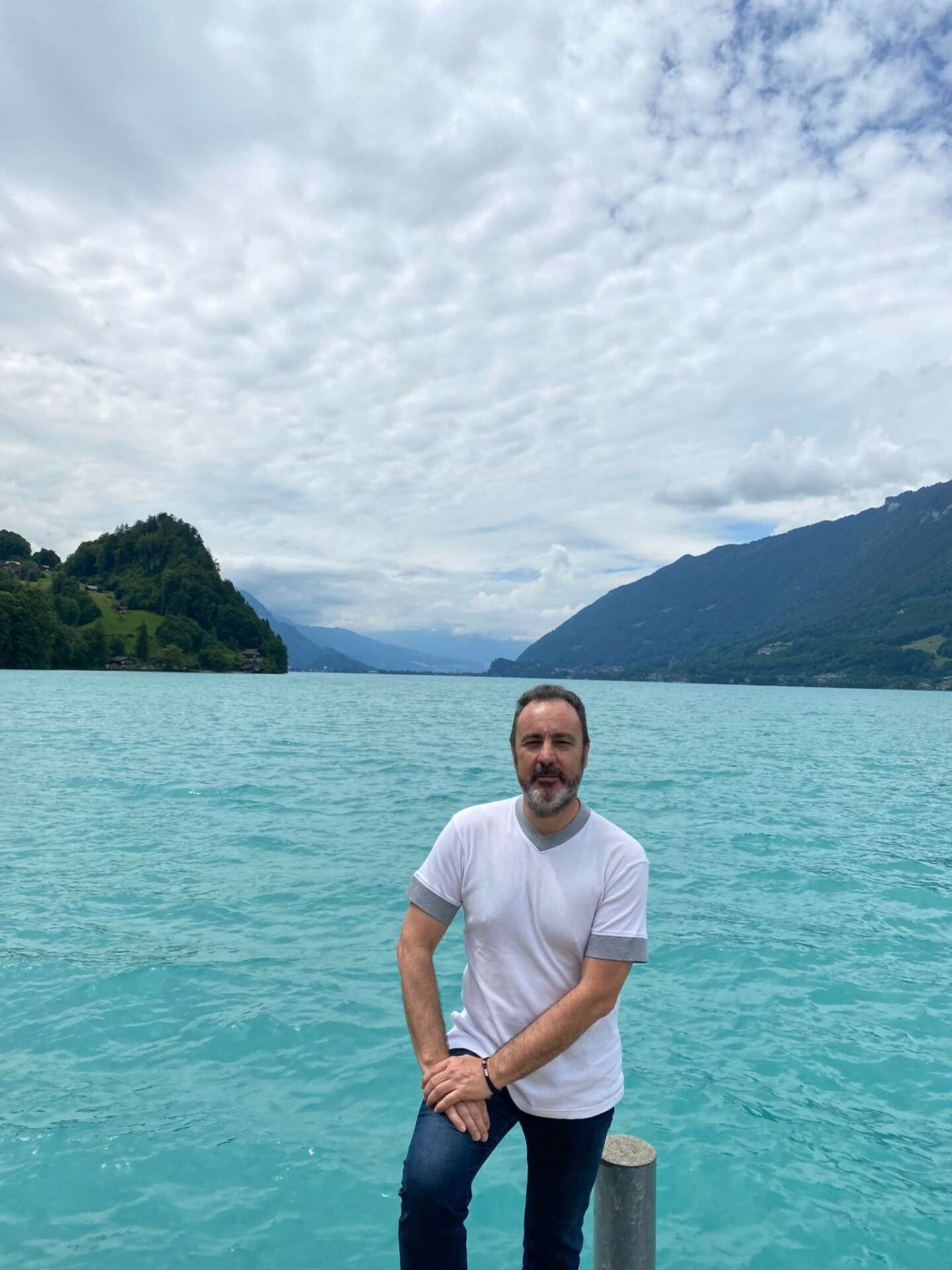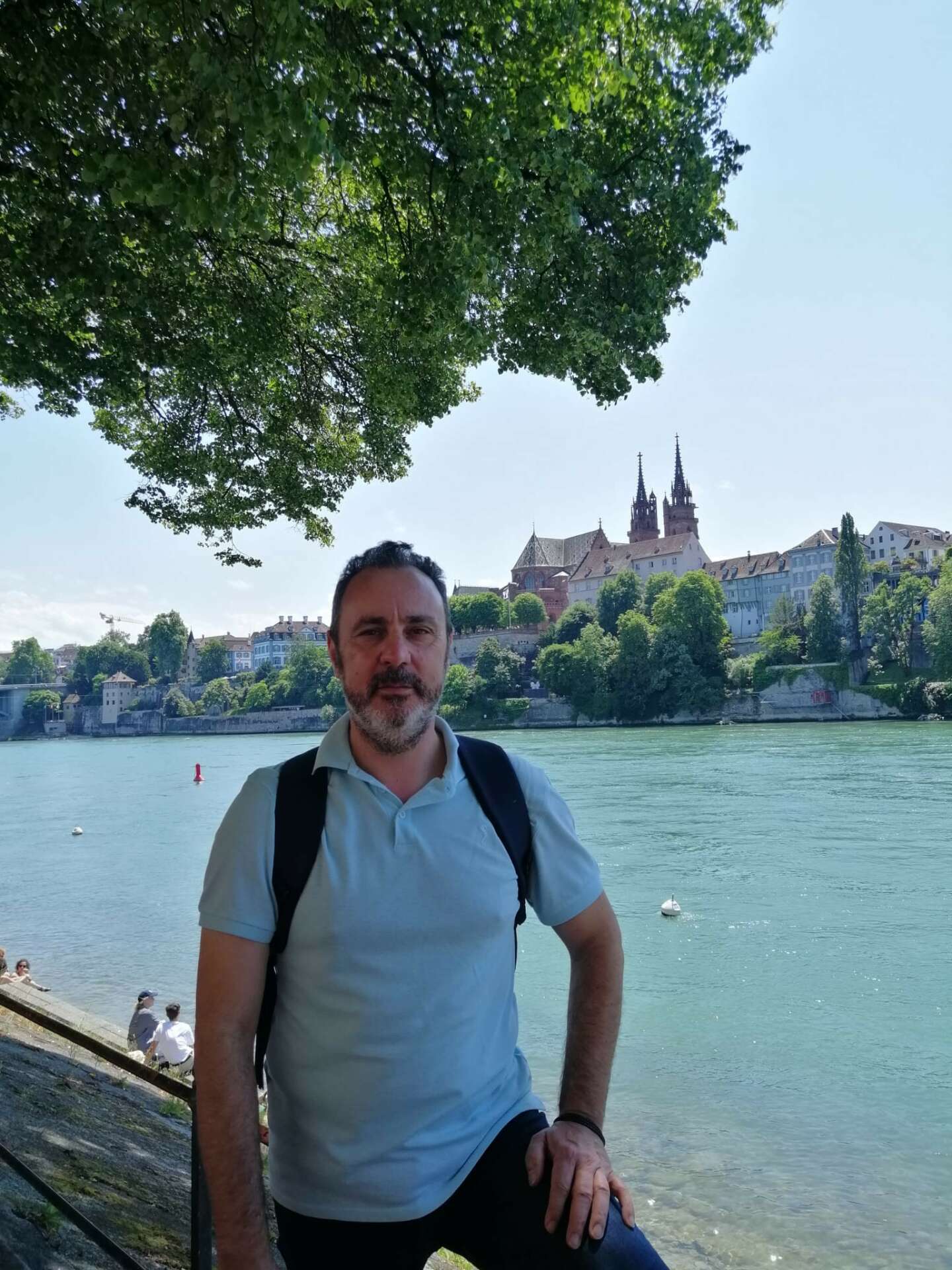We were lucky to catch up with Germano Couto recently and have shared our conversation below.
Alright, Germano thanks for taking the time to share your stories and insights with us today. Can you share an important lesson you learned in a prior job that’s helped you in your career afterwards?
I have been a nurse since 1994. I started providing healthcare in a primary healthcare center, where I learned that a smile and hand touch sometimes do more than medicine and high technologies. When I visited patients’ homes, I felt light and hope to enter their souls. Sometimes I was the only person they talked to them all day. Loneliness kills as much or more than any disease! Healthcare professionals must stop being so technical and rigid and start thinking about how they would want to be cared for if they were bedridden. Science is essential, for we are who we are through it. Still, without humanity, empathy, and a smile, we do nothing positive in the lives of those who need us. After a few years of caring for older adults, I moved on to the opposite: caring for pregnant women and their newborns. I specialized in Obstetric Nursing and started caring for pregnant couples during the beautiful journey of starting a family. I helped many children deliver, and I have learned that birth is something natural, without rushing or decisions made by others. The couple must be aware of their journey and make an informed decision. Most births that end in C-sections are due to excessive intervention by health professionals. Nature knows what it’s doing, and we will only have to intervene in specific situations. I learned that the smile and the hand remain and are a unique help for the woman in labor.
I have always remembered that a health professional is, first and foremost, a person. That person has only chosen a profession to help others have better health, not to control others and impose their will, hollow power, and often ignorance. As the prestigious Portuguese physician Abel Salazar once said: “The physician who only knows medicine doesn’t even know medicine”…


As always, we appreciate you sharing your insights and we’ve got a few more questions for you, but before we get to all of that can you take a minute to introduce yourself and give our readers some of your back background and context?
I am a nurse, university professor, and researcher. I am 51 and the father of three beautiful girls, ages 24, 21, and 14. Besides these activities, I am also a hypnotherapist and a writer. These last two activities have completed my personal and professional worlds. As a hypnotherapist, for some years now, I have been trying to help people with psychological problems, namely in situations of anxiety, depression, phobias, and low self-esteem. My help has made a difference in many of the people I have received in my practice. As a writer with three published books, one of poetry and two novels, under the pseudonym Santiago Palma, I have better understood the world around me. Writing is a moment of discovery and surrendering to my inner self, hoping to help others through my writing.

Do you have any insights you can share related to maintaining high team morale?
Managing people and teams is one of the most arduous tasks in business management. As a manager for many years, as head nurse, as nurse director, and as president of the Portuguese Nursing Council, I was able to enhance some essential strategies of a more human nature, such as:
- Active listening skills: listening carefully to peers and showing genuine interest in their concerns and ideas.
- Presentation skills: conveying information and presenting ideas clearly and engagingly.
- Recognizing peers’ emotions: being able to identify and understand peers’ feelings.
- Dealing with conflicts: emotional intelligence is essential to resolve disputes effectively. A good manager should be able to positively manage conflicts between colleagues or between a colleague and the company.
- Delegating tasks appropriately: an excellent human resource manager must identify team members’ skills and capabilities and assign tasks according to their competencies. This involves trusting team members to carry out their responsibilities, providing guidance and support when needed, and allowing them to take responsibility for their work.
- Developing a positive work culture: a manager must create and promote a healthy, positive work culture where peers feel valued, respected, and motivated. This can be achieved by setting clear goals, encouraging teamwork, recognizing and rewarding outstanding performance, and promoting open communication and collaboration.
- Anticipating changes and trends: an excellent manager must be able to analyze the organization’s external and internal environment, identify emerging trends, and anticipate changes that may impact human resource management. This includes keeping up with changes in labor laws, emerging technologies, demographic shifts, and other issues relevant to the human resources (HR) field.
- Developing action plans aligned to organizational goals: based on their understanding of the context, a good manager should be able to create strategic action plans aligned with the organization’s overall objectives. This involves setting HR goals.
- Identifying required resources, defining key performance indicators, and implementing measures to track the progress and impact of these actions.
- Building positive working relationships: a human resources manager must develop and maintain positive relationships with peers, co-workers, unions, external partners, and other stakeholders. This involves being courteous, respectful, genuinely interested in people, and cultivating a collaborative culture.

Are there any books, videos, essays or other resources that have significantly impacted your management and entrepreneurial thinking and philosophy?
One of the books that most impressed me as a professional and a person is “Notes on Nursing” by Florence Nightingale, considered the mother of modern Nursing, published in 1859. I had the privilege of translating this work, currently for sale, into European Portuguese. This work is considered a hallmark of and for modern nursing. Florence Nightingale shares her experiences and knowledge gained during her nursing career in this book. She sets out fundamental principles for nursing practice. Some of the main lessons I learned were: 1) Importance of hygiene: Florence Nightingale emphasized the importance of hygiene in preventing disease and promoting health. He highlighted the need to keep environments clean and well-ventilated and ensure adequate personal hygiene to prevent infections, which many modern institutions still need to do! 2) Role of environment in recovery: Nightingale recognized that the physical environment could affect patients’ recovery. She advocated for creating quiet, well-lit, and well-organized environments to promote healing and well-being for patients. 3) Systematic observation and recording: Nightingale emphasized the importance of carefully observing patients and systematically recording their conditions. She noted the need to collect accurate data about patients and use this information to make informed decisions about nursing care. 4) Ethics and compassionate care: Nightingale emphasized the importance of ethics in nursing practice. She advocated compassionate care and individualized attention to the sick, respecting their dignity and privacy. 5) Education and professional development: Nightingale recognized the importance of education and continuing professional development for nurses. It encouraged the pursuit of scientific knowledge and applying evidence-based methods in nursing practice. These lessons remain relevant today and have contributed significantly to developing nursing as a respected and principled profession. Florence Nightingale’s work helped to establish the standards of nursing care that are still followed today.

Contact Info:
- Instagram: https://www.instagram.com/germano.couto/
- Facebook: https://www.facebook.com/germano.couto.1
- Other: https://www.livrariaatlantico.com/ficcao/do-coracao-a-raiz-das-estrelas https://www.livrariaatlantico.com/nao-ficcao/sonhos-de-um-caminho
Image Credits
Germano Couto


